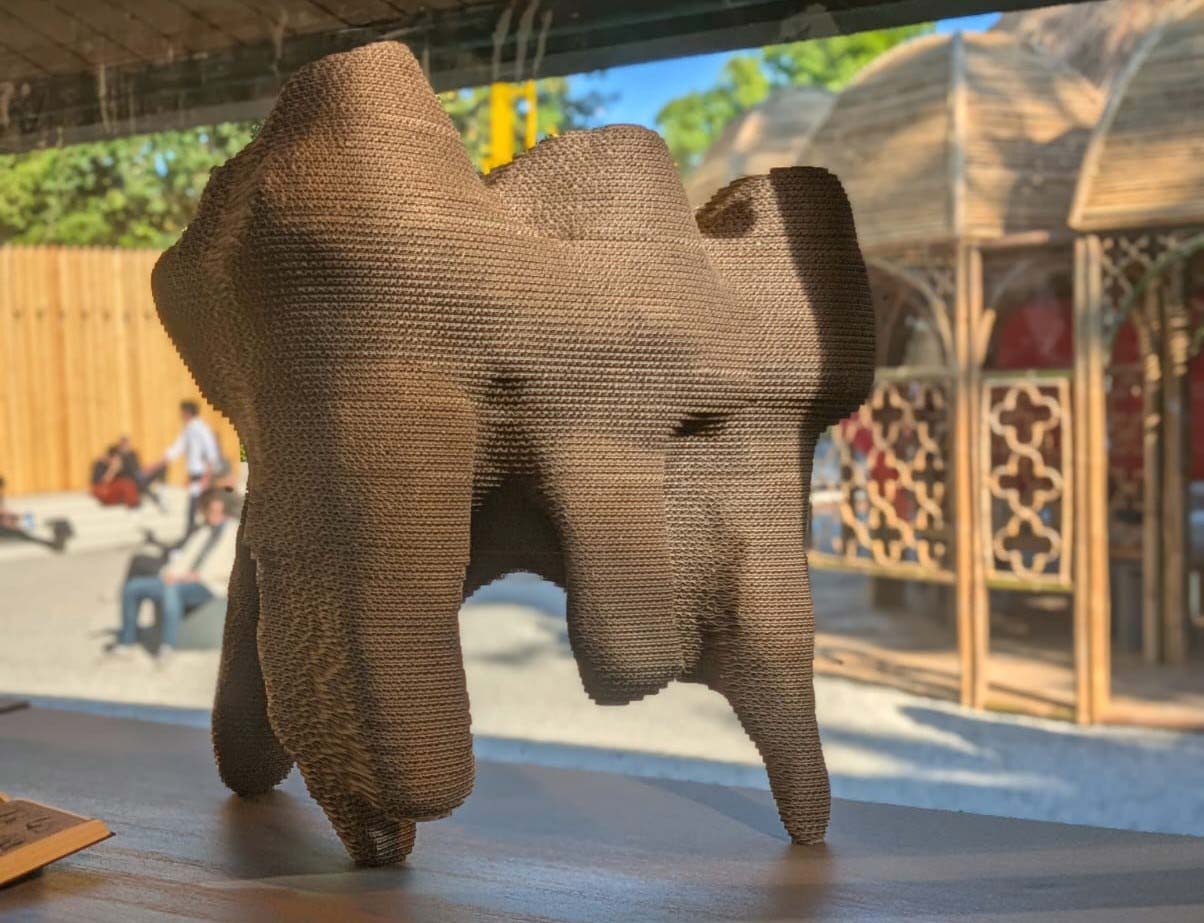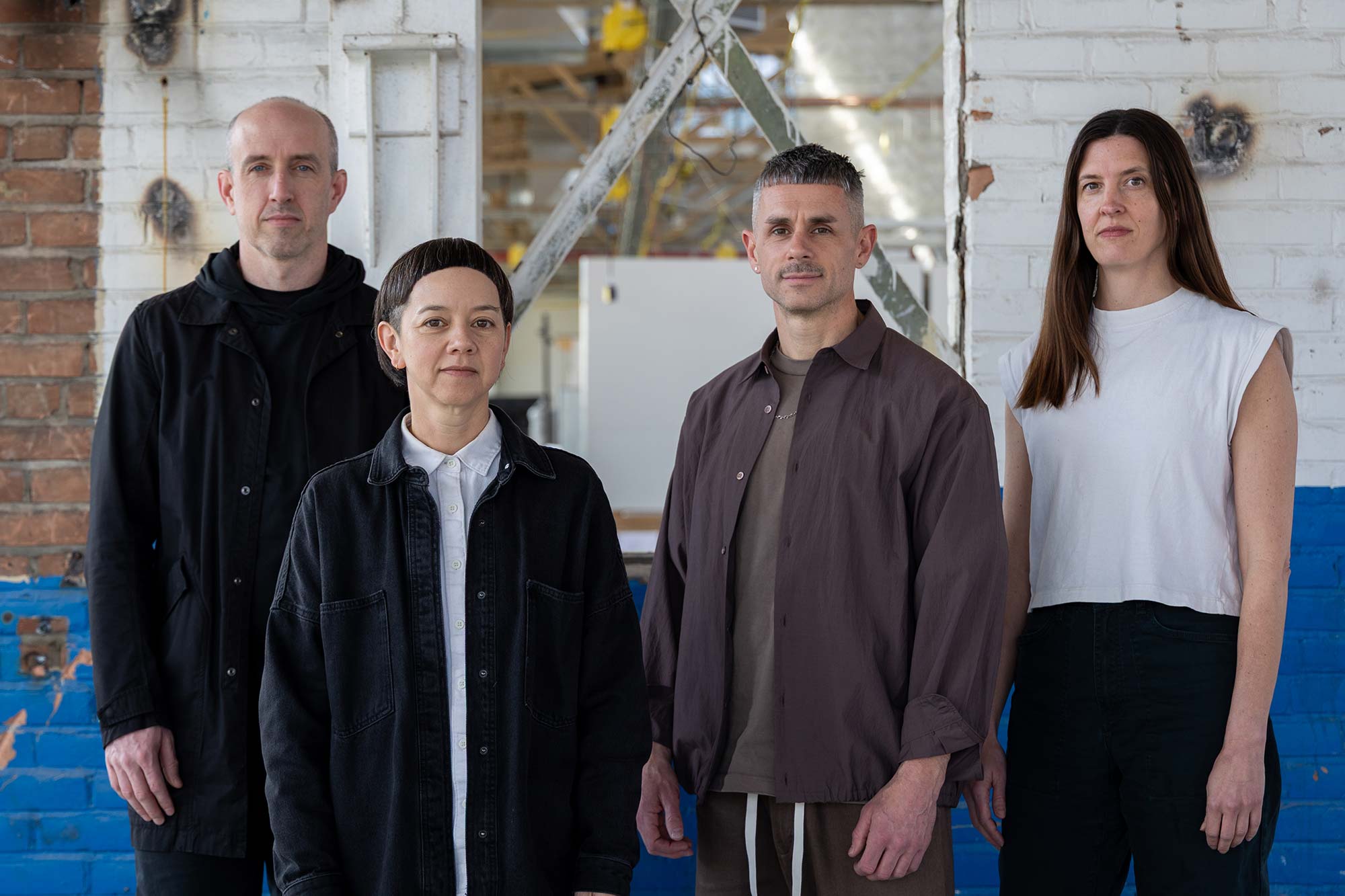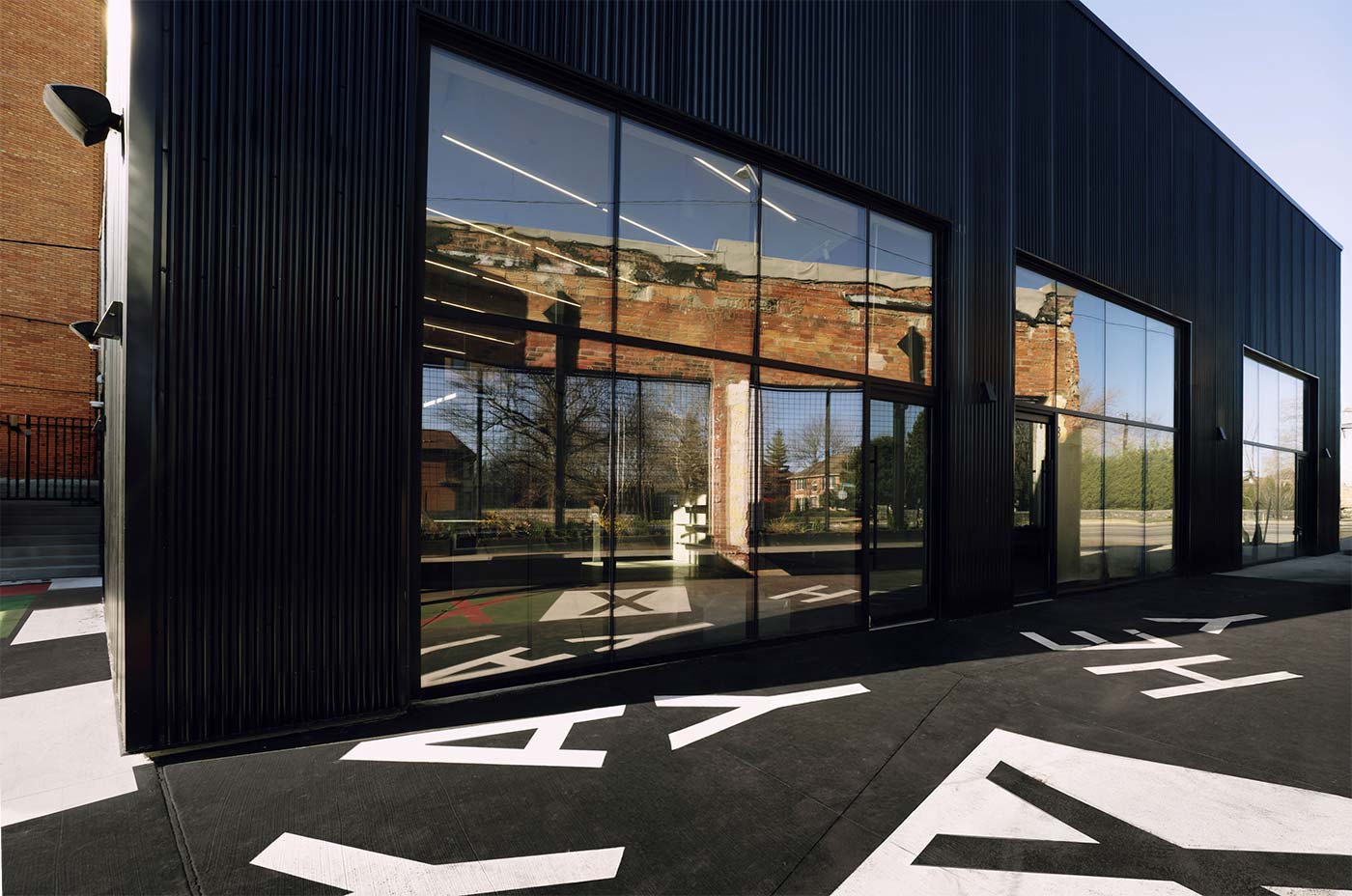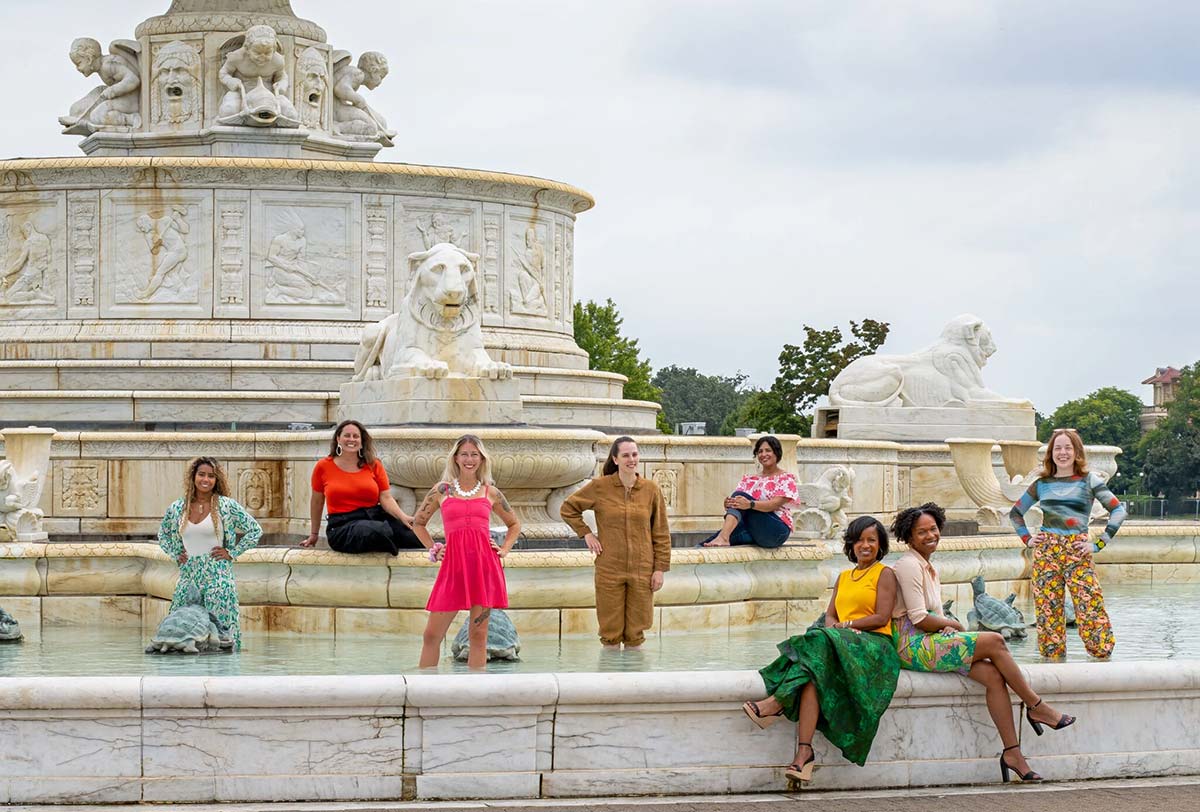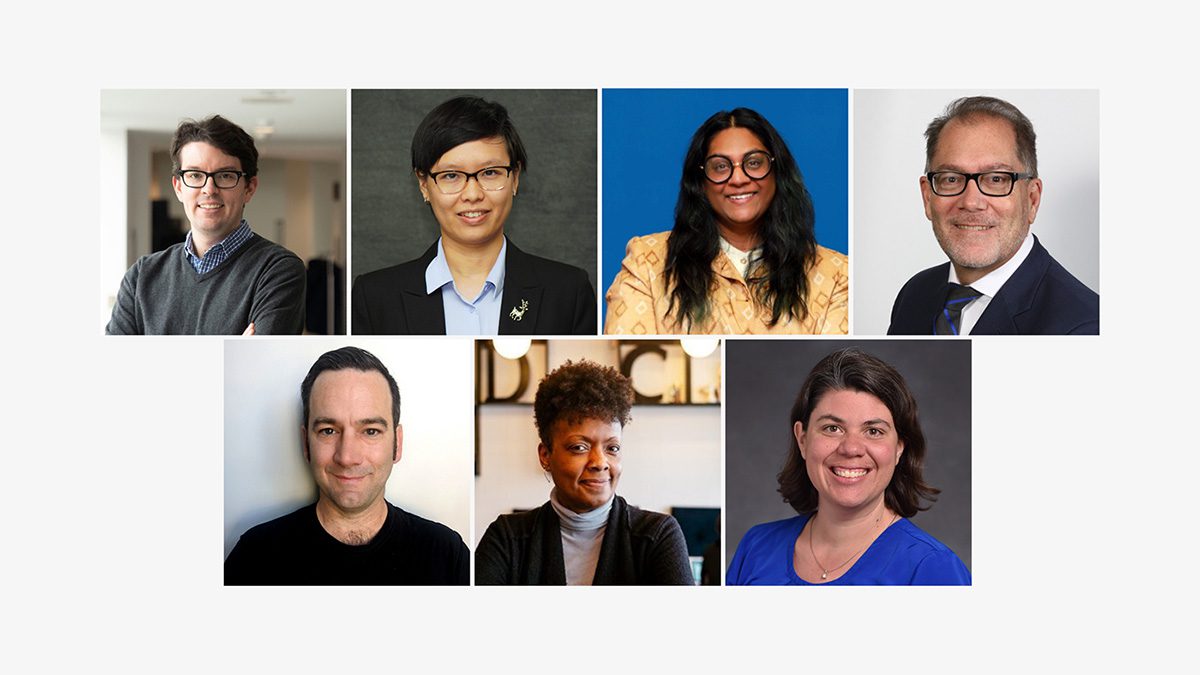
New Faces and New Directions for Urban and Regional Planning
The Urban and Regional Planning program at Taubman College welcomes new faculty and new leadership in fall 2023, coinciding with the beginning phases of developing a new strategic plan for the program.
“It’s an exciting moment,” said Robert Goodspeed, associate professor of urban and regional planning who recently started a term as program chair. “We’re investing in and building on the program’s strengths—such as urban analytics, sustainability, and equitable revitalization—as we look to equip students with skills for a future with many urban challenges and opportunities.”
In addition to Goodspeed’s appointment, this fall, the program welcomes new faculty members Lauren Hood, professor of practice; Sarah Mills, associate professor of practice; Madhavi Reddy, professor of practice; and Matthew Wizinsky, associate professor of practice. Xiaofan Liang, assistant professor, will join the program in the winter of 2024. In addition, in a new leadership role is Bill Bubniak, associate professor of practice in urban and regional planning and director of real estate initiatives.
The program’s new faculty and leadership provides expanded capacity in key areas.
“Our program has long-standing curricular and research ties in Detroit. Lauren Hood and Madavi Reddy build on that tradition,” said Goodspeed. “Madavi Reddy is the executive director of Community Development Advocates of Detroit, and Lauren Hood founded the Institute for AfroUrbanism. They are both deeply engaged in community development and provide exciting additions to our faculty. We also have a new and growing undergraduate real estate minor and a long-standing real estate certificate program. Bill Bubniak, who also works as the executive vice president of the Farbman Group, is not only a professor of practice but will contribute leadership to both of those programs. Finally, Xiaofan Liang and Matthew Wizinsky will both teach courses in our program’s new B.S. in Urban Technology, which launched two years ago.”
“I’m excited by the energy and ideas all of these new faculty are bringing to the Urban and Regional Planning program and how their courses and expertise complement our outstanding existing faculty,” said Goodspeed.
Some of the new courses on offer from the incoming faculty include Hood’s “Shifting the Planning Paradigm: A Movement from Revitalization to Reparations,” an innovative course that transcends disciplinary boundaries to explore the future of cities and explore the question of racial reparations; Mills’s “Energy Planning,” which draws on her pioneering research into the planning and policymaking for large-scale solar and wind farms; Reddy’s “Neighborhood Planning,” exploring explores interdisciplinary approaches to neighborhood analysis and intervention; and Bubniak’s “Financing Real Estate Development,” which provides practical, real-world tools to prepare students for a career in real estate. Wizinsky, a designer and scholar, will teach urban tech studios as well as a fall elective in “Solar Punk Design: A Vision of the Future in Progress” about emerging utopian visions of a socially just and ecologically sustainable future.
The author of the 2020 book Scenario Planning for Cities and Futures: Managing and Envisioning Uncertain Futures, Goodspeed is known for his research on scenario planning, an increasingly popular planning method used by professional planners to build consensus about urban change and foster resilience by analyzing uncertainty. It’s therefore fitting that Goodspeed will launch a strategic planning effort for the program this year, which will engage faculty, staff, and students.
“From soaring housing costs to climate change, disruptive technology, and racial equity, news headlines every day highlight the many areas where our graduates can make a difference in the urban planning, real estate, and urban technology fields,” says Goodspeed. It’s not all problems, however. Goodspeed notes that with major new public investments in infrastructure and shifting public opinion, “we’re entering an era where the program’s graduates can make a big impact.”
With a full administrative slate and an active research portfolio, including the Michigan Zoning Atlas, and Justice InDeed, a community-engaged project to map racially restrictive covenants, where does Goodspeed get inspiration?
“That’s easy – the students! Whether through contributions in my classes and research, or via our inspiring student initiatives like the Agora journal or student-led Radical Planning course, their curiosity and passion make this place tick.”





